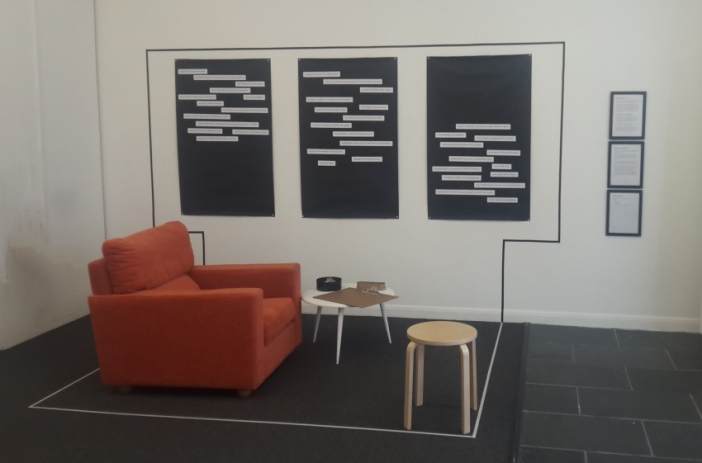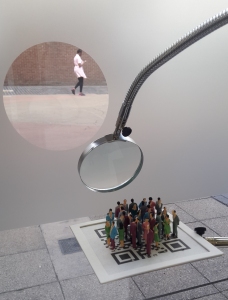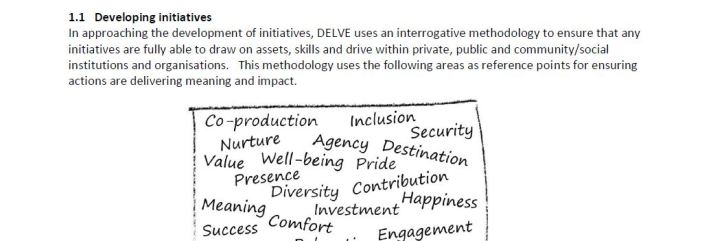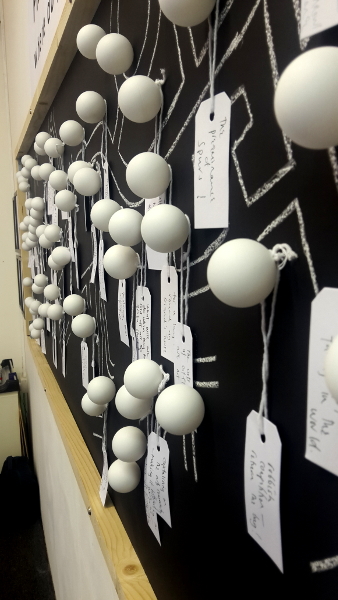Grappling with ‘prosperity’ and ‘resilience’:
DELVE has spent some time exploring and testing socially useful approaches to resilience and prosperity, drawing on many years’ experience of socially engaged practice in the creative sector and in supporting the strategic sustainable development of organisations. Holding onto these understandings is key to DELVE’s approach:
Prosperity
DELVE defines a prosperous town as one which is thriving, characterised by its inhabitants’ high levels of well-being and access to fulfilling jobs and varied employment opportunity in a high quality environment with many, varied social / communal activities – shifting away from a definition focussed solely on financial success.
Resilience
A resilient town is one able to respond to opportunity and is ready to withstand unknown challenges that may be around the corner, whether they be environmental, economic or social. It has the means to bounce back from such adversity, maintaining its sense of wellbeing by having strong relationships and interconnections’.
DELVE believes all places can be both resilience and prosperous and that these characteristics of place are intertwined. This report sets out to support the neighbourhoods and the district of Harlow New Town as whole to become more resilient and prosperous.
Focus on health and wellbeing:
To develop its cross cutting initiatives, DELVE has analysed the potential revealed by its action research to focus on practical resource efficient action. In this, it has also taken the New Economics Foundation’s influential work on wellbeing for the UK Government’s Foresight Project on Mental Capital in which it developed a set of evidence based actions to improve personal wellbeing.
(NEF) sets out five actions on wellbeing:
- connect
- be active
- take notice
- keep learning
- give
Seriously…. try them in your daily life: These five actions really make a difference. DELVE applies them in the development of its projects and responses to opportunity so that they can empower individuals and organisations to create localised solutions for resilience and prosperity.
Find out more about the application of DELVE’s thinking around prosperity and resilience and how the 5 ways to wellbeing have been used to create exciting initiatives for Harlow in the downloadable PDF “Resilience and Prosperity through Culture: Harlow” coming July 26 2017.


 © DELVE Associates 2017 all rights reserved image credit: Richard Sobey 2017
© DELVE Associates 2017 all rights reserved image credit: Richard Sobey 2017










